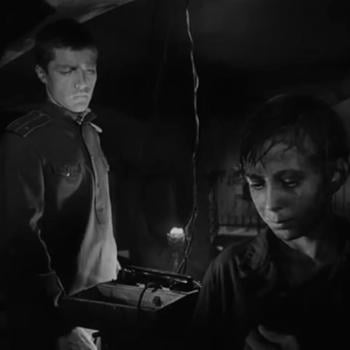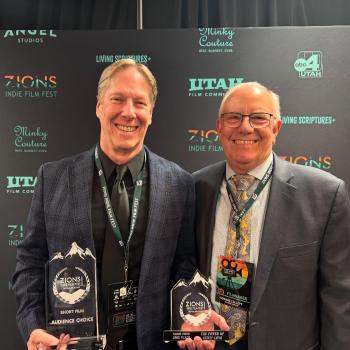So what is to be done? Plenty, of course. But one solution brings us back to the Boomers who began (though they are not to be blamed for) this process, a process that is likely to continue in spite of current economic difficulties.
There are limits to which a society can pull itself apart, and the Baby Boomers -- or their needs as they age -- will begin to assert a strong counterweight. Politically, the need to find a solution to the pressing demands of paying for their elderly years is already exerting a powerful pressure on national figures. Meeting this challenge will be a shared experience, although our tribes differ in how they think the experience should be shared. Death cuts across all divides; it is not the province of any one party or movement or denomination. So as we children of Boomers care for our parents in their final years, we have an opportunity to share faithfully and to show how Christianity is deeply true and real and meaningful to all of humanity.
For nearly a century, the end of life experience has been mediated by professionals. Our culture now has no idea how to face death, precisely at a time when we're most likely to be forced to deal with it. Today people die only after lengthy illnesses. Many families will spend years caring for their elderly members, bringing death back into the home. Yet such a responsibility is new and often comes as a surprise. We have lost our traditions of caring for family members near the end of life while they are in the home. And our culture writ large is flummoxed when it comes to dealing with and understanding death.
This universal experience will apply to every tribe and homogeneous unit. And here is where the church can overcome the negative tendencies of tribalization and provide an example to a culture that is very much in need. The church is not here to serve only like-minded tribalists but, like the Good Samaritan, we are to care for all those who are in need of tangible love. Christianity exploded in its early centuries in part because of its compassionate and longsuffering care for the ill and dying. It could do so once again.
Historically, Christianity taught about the good death, sometimes even called the happy death. This is a death that embraces family and loved ones and includes reconciliation with God, family, and friends. It provides purpose, meaning, and hope through the end of life. And it requires spiritual preparation for eternal life with God. Practiced for centuries, it illustrates the Christian hope of bodily resurrection and hope in Christ.
The house of American evangelicalism will not rise or fall solely by how it deals with the decline of the Boomers. But it will diminish, the salt will lose its flavor, if we cannot recover and teach the art of dying. The church has a tremendous opportunity actually to be a community of Good Samaritans, caring for the spiritually wounded and physically ill. If it chooses to do so, the church can overcome the ongoing fragmentation of our culture, offering the universal hope of the one who defeated death.
Rob Moll is editor at large for Christianity Today and author of The Art of Dying: Living Fully into the Life to Come. He has been published in The Wall Street Journal, Books & Culture, and Leadership.




